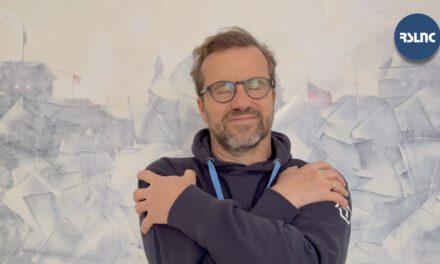Why is resilience becoming increasingly important for our psychological health? And what does all of this have to do with the increasing insecurity that many people feel?
One of the main reasons is that we are at a point in human history that we can probably understand as the end of an epoch or epochal turning point. This applies above all to the so-called ‘first world’, to which we as Europeans or Americans consider ourselves to belong, but certainly also to all other people on our planet, albeit in a slightly different way.
The last time such an epochal turning point took place was almost 300 years ago. It was the Age of Enlightenment or Renaissance that ushered in the end of the Middle Ages. The underlying narrative has been guiding us for the last 300 years. It is based on three main pillars:
- Individual freedom through liberation from social dependence – i.e. the end of serfdom and thus the possibility of social self-determination
- Decoupling from nature – the belief that we humans can subjugate the world through the use of technology and industrial production
- Overcoming scarcity – the liberation from hunger and need, and the belief in the possibility of increasing prosperity for all
In summary, the Age of Enlightenment gave us the belief and the promise of a better future for all – and this narrative has endured across society for almost three centuries.
The big problem – and we experience this as a massive disruption that produces stress and triggers anxiety – is that we now “suddenly” realise: in the way we have implemented this “promise of the future” and this belief in eternal growth as individuals and societies, we have simultaneously caused great harm:
- The costs of the prevailing economic systems exceed the profits realised – the balance sheet is increasingly negative
- The way we treat nature is leading to the gradual destruction of the basis of our existence – the climate crisis is almost unstoppable
- The narrative of progress is losing its power, meaning and credibility – the increasingly unequal distribution of resources and profits is leading to a growing division at all levels of interpersonal life (families, groups, societies, countries, continents or the world as such)
In other words, the hope for a better future has turned into a growing threat – even for the profiteers!
But why is this development so challenging? What does it do to us as human beings? And what does all this have to do with resilience?
The main effect is the dissolution of the familiar – that which has given us security and orientation. To the extent that what we believed in no longer applies, trust is lost. Orientation disappears. Complexity increases. The result is uncertainty at first. We no longer know what the right answers to life’s central questions are. What to think and how to behave. What is worth investing effort and energy in. This uncertainty leads to insecurity. And this uncertainty creates fears. And these fears in turn lead either to a feeling of powerlessness and ultimately resignation, or to resistance. People don’t want to accept it and start to fight back (which to some extent is what we can see and experience on our streets).
But how can new answers and options for action be developed in this world? How can we best deal with the increasing complexity and speed of change? What helps us not to „go mad” or give up?
Above all the essential resilience skills such as acceptance, consciousness, empathy, compassion, optimism, etc. But there are also other aspects that are important for dealing better with the challenges of shaping the future of individuals, organisations and society. These include:
- Honestly questioning cause-and-effect relationships – this naturally links back to consciousness and mindfulness. What impact does my behaviour have on my environment? How can I contribute to tackling the identified problems, at least on a small scale? Which organisations, institutions or parties should I support so that the necessary changes are actually tackled and structurally resolved where I as an individual can no longer be self-efficacious?
- Understanding uncertainty as a constant in life – this is primarily about acceptance. Because only by accepting the here and now can optimism for the future ultimately arise. To do this, it is necessary to recognise uncertainty as a constant in life – and a central part of our existence. Of course we all aim for security. But this security does not actually exist in reality. It is also only a construction of reality. A desire. To the extent that we succeed in developing uncertainty skills, we become more resilient. To this end, it is important to resist any impulse to comfort yourself and to question any form of relativisation, as they often only serve the purpose of appeasing yourself – and thus of doing nothing and not changing anything.
- Recognising paradoxes as the limits of certainty – because there are no clear answers to most of the questions we are facing. Each solution has advantages and disadvantages. And the existence or possibility of the opposite is always inherent in every supposed certainty.And the existence or possibility of the opposite is always inherent in every supposed certainty. So we know or suspect that things are or can be completely different at the same time. So there is no one certainty, only multiple certainties or multi-optionality.So there is no one certainty, only multiple certainties or multi-optionality. As a consequence, it is therefore a matter of making those options that we would like to ignore for a variety of reasons speakable, discussable and negotiable in dialogue with ourselves and others – and thus engaging with uncertainty in an open-ended way. In this sense, it is also about being aware that there is probably no optimal solution or decision, but only the best option at a certain point in time and with a certain level of knowledge – which may have to be questioned again later. In other words, it is important to learn the art of AND and to avoid EITHER-OR wherever necessary.
All three aspects and skills help us to develop our uncertainty competence and to deal better with the increasingly rapid and complex challenges of our lives – and at the same time to make a positive contribution to the necessary changes that will ultimately ensure the survival of humanity. We have more impact on these than we often believe – in our families, the companies and organisations we work in, and our society.





